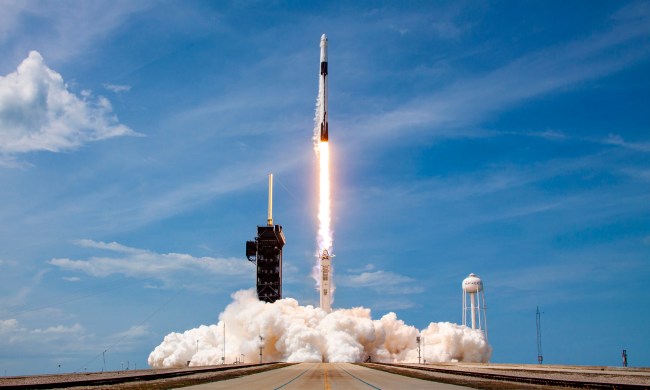Poor weather conditions can play havoc with space mission schedules, so how are things looking for Monday’s launch of NASA’s mega moon rocket?
Despite recent forecasts showing some unsettled weather in the area, NASA’s highly anticipated Artemis I rocket launch from the Kennedy Space Center in Florida on Monday currently has a 70% chance of acceptable conditions prevailing.
That’s according to the 45th Weather Squadron, which provides detailed assessments for air and space operations in the U.S.
NASA takes careful note of the squadron’s forecasts and so will be pleased to learn that its mega moon rocket — the most powerful it’s ever built — has a decent chance of lifting off from the Kennedy Space Center on time on Monday evening.
The squadron, which issued its forecast on Thursday, listed primary concerns for Monday as cumulus clouds that could be too close for comfort, along with precipitation and thunderstorms.
Looking at the likely weather situation along the Space Coast on the day prior to the scheduled launch, the squadron said there’s expected to be a decrease in rain showers and any thunderstorms.
It added that for Monday’s launch window, which opens at 8:33 a.m. ET and closes at 10:33 a.m. ET, the overall lightning threat “seems low,” though it noted that “scattered showers” could occur in the area.
The 45th Weather Squadron will continue to keep a close watch on the developing conditions in Florida over the coming days and will issue an updated forecast on Friday, three days before launch.
Barring any problematic weather and technical issues, NASA will conduct the first-ever launch of its next-generation Space Launch System (SLS) rocket on Monday, August 29.
Here’s how to watch a livestream of the event.
The 98-meter-tall rocket will propel an uncrewed Orion spacecraft toward the moon in a maiden flight that will take it within just 62 miles of the lunar surface. The six-week test mission will culminate in Orion splashing down off the coast of California.
A successful rocket launch and spacecraft flight will pave the way for a crewed mission taking the same route, followed by a third mission that will put the first woman and first person of color on the lunar surface.
A lot is resting on the Artemis I mission, and nothing will please NASA more than to be able to get away on schedule. If any issues force the space agency to call off Monday’s launch, other opportunities to send the SLS rocket skyward are available on September 2 and September 5.


